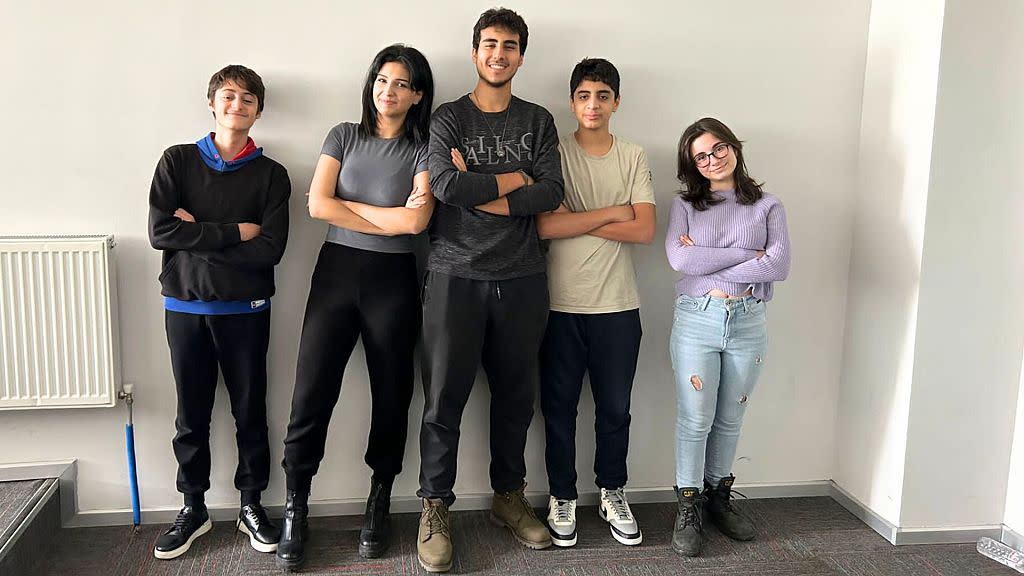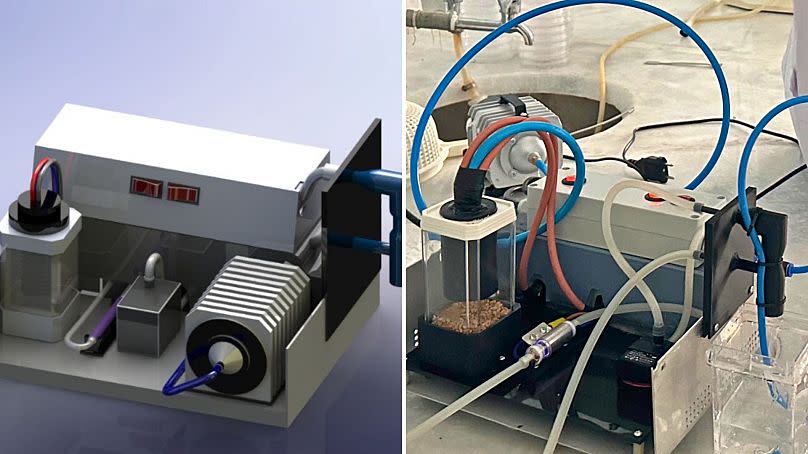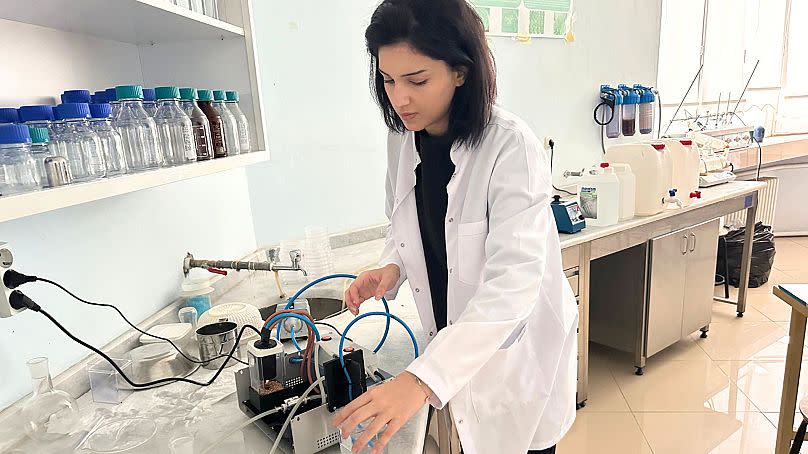‘I feel angry about climate change’: Meet the Turkish teens channelling their rage into solutions

“My community is my inspiration,” says 17-year-old Beyza, a runner-up of The Earth Prize.
“In Türkiye, we are living the effects of climate change. This region was Mesopotamia, where agriculture and civilisation was born, but now people are struggling with climate change and drought.”
While many young people march to demand climate action, Beyza has leveraged her scientific mind by developing a “drought-defying plasma-powered crop solution”.
“It’s not good to watch when the big governments can solve these issues - but we are trying to do that and not them,” says 18-year-old Diyar, who is working on the project with Beyza.
“And since we are not able to change the climate - the problem itself - we are trying to solve the effects of it. I think if this problem got enough attention from much bigger authorities, it could be solved - that is the part people are angry at.”
Together with their fellow inventors on Team Ceres, they entered their solution into The Earth Prize, a global environmental sustainability competition for students that provides mentoring and funding for winning ideas.
As Beyza pulls the ‘Plantzma’ prototype out of her bedroom wardrobe and explains it on a video call, it’s clear they’re not your average teenagers.
How can plasma help farmers fight against climate change?
“Our idea for Plantzma originated from the agricultural challenges we observed in our community and family,” says Beyza.
“Many people we know work in agriculture, since our region has limited access to resources such as education, and they face significant issues due to drought and crop failure - there has been a 40 per cent decline in precipitation rates, leading to an 80 per cent crop loss.”
The probability of crop failures is projected to be as much as 4.5 times higher globally by 2030, and 25 times higher by 2050, according to the World Economic Forum.
‘Install and forget’ soil-powered batteries could bring cheap, clean energy to farms in Europe
‘We are the first impacted by climate change’: Why Europe’s rural farmers support green policies
Not only does this impact farmers’ livelihoods and food security, it leads to fertiliser overuse which worsens the problem through pollution and soil degradation.
Beyza and her team set out to address these issues with Plantzma: an easy-to-use device that leverages plasma to create more resilient crops and enrich irrigation water.
Priced at €176, a single device can prevent crop loss by as much as 60 per cent and reduce expensive fertiliser usage by up to 40 per cent, Team Ceres estimates.
“So when we interviewed farmers, they were happy to hear about this product,” says Beyza. “It can be used by just clicking two or three buttons.”

What exactly is plasma?
Plasma - the fourth state of matter besides solid, liquid and gas - “is essentially supercharged ionised air,” explains Diyar.
Its superheated particles have so much energy that the electrons separate from their atoms. Unlike gas, it easily conducts electricity.
Rare on Earth but abundant in Space, plasma requires three things to be created: a gas such as air, a discharge system with electrodes, and a voltage system, Beyza explains.
Her journey with plasma is a testament to her scientific curiosity beyond the classroom.
“I thought about using plasma because I was into exoplanets,” she recalls. “So I was reading NASA's articles so much, and NASA has so much work about plasma and its wide range of uses.”
The Plantzma device uses low-temperature plasma in two ways.
“In the direct treatment we treat the seeds in a container with plasma before cultivation, improving the germination rate and growth potential from the beginning by creating nano-cracks on the surface of those seeds, and this increases the resistance to diseases, drought and other environmental stressors,” explains Diyar.
“In the indirect treatment, we treat irrigation water with plasma, enriching its properties to benefit plant growth, and that process turns the water into an [environmentally friendly, nitrogen enriched] plasma fertiliser which supplies essential nutrients for the plant and stimulates fruit and vegetables.”

‘I want to work in the UN, that’s my dream’
Team Ceres wants its plasma technology to become as accessible as possible, so it can be scaled and used in rural communities.
“The solution can be implemented anywhere in the world where agriculture is [prevalent], including many places that don’t have access to modern technologies,” says Beyza.
For that to become a reality, they’re trying to raise funding to advance the idea and eventually expand it internationally.
As Diyar embarks on a major in electrical engineering at NYU Abu Dhabi, Beyza soon hopes to study environmental engineering and political science at university.
“I feel angry about climate change because, as you know, it is not just related to the environment, it is mostly related to the economy… and I'm angry towards the future, thinking about, ‘Are our water resources enough for us? And are we going to be able to mitigate the effects of climate change in our region?’,” she says.
“I want to work in the UN, that’s my dream… I can see that there's a lack of environmental policies in underdeveloped countries or developing countries… [where] climate change is a real challenge.
“So when we invent something, making it really accessible and changing environmental policies are really important for these vulnerable communities.”


